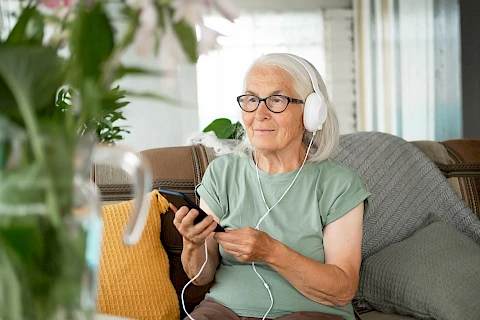
Sundowning—a common and often distressful symptom of Alzheimer's and dementia—drastically disrupts the lives of seniors and their caregivers. It's marked by increasing confusion, agitation, and restlessness during the late afternoon or early evening. Although it's a challenging issue, there are alternative non-pharmacological methods available that promise relief.
Let's take a look at the diverse yet accessible therapies to minimize sundowning symptoms. From light and music therapy to the calming effects of aromatherapy, our goal is to help improve the evening routines of seniors affected by this phenomenon.
Understanding Sundowning
Primarily occurring during the late-day hours, sundowning is a term given to a spectrum of symptoms seen in Alzheimer's and dementia seniors. As the sun sets, these seniors may experience increased confusion, anxiety, agitation, and disorientation. This may also lead to pacing, wandering, and sleep disruptions, causing distress for the affected seniors and their caregivers.
The Importance of Non-Pharmacological Approaches
While there are various pharmacological treatments available for managing sundowning symptoms, they often come with side effects that may not be suitable for every senior. Subsequently, alternative, non-pharmacological therapies have gained increasing interest. When applied with the approval of professional healthcare providers, they are generally safer, and they can offer holistic benefits by addressing not just the symptoms but the overall well-being of the seniors.
Light Therapy
Light therapy entails exposure to specific types of light at certain times of the day. It can help regulate the sleep-wake cycle and reduce the confusion and agitation associated with sundowning. This can be achieved simply by ensuring that seniors are exposed to ample natural light during the day, particularly in the mornings. During the evenings, reducing exposure to bright lights can help prepare their bodies for sleep.
Aromatherapy
The sense of smell is a potent catalyst for memory and mood. Aromatherapy uses this to its advantage, employing essential oils to produce calming, soothing effects. Lavender, for instance, is known for its relaxation properties and can be effective when used in the evening hours. Oils can be introduced through diffusers in living areas, or relaxing baths before bedtime.
Music Therapy
Music has a profound link to our emotions and memories. For seniors with sundowning, music therapy can be a source of calm and comfort. Soothing music in the evening, particularly tunes that are familiar or have a personal connection to the seniors, can help reduce their anxiety and agitation. This can be incorporated into their evening routine, either by playing music softly in the background or by arranging a dedicated listening session.
Other Non-Pharmacological Approaches
There are also other non-pharmacological therapies worth considering. Cognitive-behavioral therapy, for example, can help seniors understand and manage their behavior better. Calming activities such as reading or puzzles during the evening may also help distract them from any confusion or agitation.
We're Here to Help
There is no one-size-fits-all solution to sundowning, but these non-pharmacological therapies offer promising alternatives. They present opportunities to bring about significant improvements to the evening routines of seniors affected by sundowning, all while enhancing their overall well-being.
Does your senior loved one live in Mt. Dora, Leesburg, Tavares, Eustis, or Gainesville? Senior Helpers The Villages is here to help. Contact us today to learn about our comprehensive in-home care and companionship services, which include expertise with Alzheimer's and dementia.